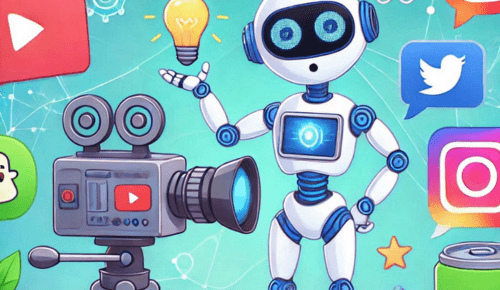As technology continues to advance at an unprecedented pace, the ethical implications of these advancements become increasingly important. The rapid development of technologies like artificial intelligence, biotechnology, and data analytics presents both opportunities and challenges. In this article, we will explore the realm of tech ethics, examining the moral dilemmas that arise in the world of innovation and how society navigates these challenges.
Understanding Tech Ethics
Tech ethics, short for technology ethics, is the branch of ethics that focuses on the moral and philosophical implications of technology and its use. It involves examining the impact of technology on individuals, society, and the environment, and considering the ethical principles that should guide the development and deployment of technology.
Key aspects of tech ethics include:
Privacy: Concerns about the collection and use of personal data, surveillance, and the protection of individual privacy.
Bias and Fairness: The recognition and mitigation of biases in technology, particularly in artificial intelligence and algorithms.
Transparency: The need for transparency in how technology operates, makes decisions, and impacts individuals and society.
Accountability: Determining who is responsible when technology goes wrong, and how to hold individuals and organizations accountable.
Autonomy: The preservation of individual autonomy in the face of technology that can influence and control behavior.
Beneficence: Ensuring that technology is developed and used for the benefit of humanity, rather than causing harm.
The Moral Challenges of Innovation
As technology advances, several moral challenges arise, including:
Data Privacy: The collection and use of personal data by technology companies raise concerns about how that data is protected and whether it is used ethically.
Algorithmic Bias: Algorithms used in decision-making processes can inherit biases from the data they are trained on, potentially leading to discrimination and unfair treatment.
Automation and Job Displacement: The automation of jobs through technology can lead to job loss and economic disparities.
AI in Healthcare: The use of artificial intelligence in healthcare can improve diagnostics and treatment but also raises questions about patient privacy and data security.
Biotechnology and Genetic Engineering: Advances in biotechnology, including CRISPR-Cas9, raise ethical questions about editing the human genome and the potential for designer babies.
Autonomous Weapons: The development of autonomous weapons that can make lethal decisions without human intervention has sparked concerns about accountability and ethical warfare.
Approaches to Tech Ethics
Addressing the ethical challenges of technology requires a multi-faceted approach:
Ethical Frameworks: Develop and adhere to ethical frameworks that guide the responsible development and use of technology.
Regulations and Laws: Governments and regulatory bodies can establish laws and regulations to ensure ethical practices in technology, such as data protection laws like the GDPR.
Public Awareness: Educate the public about tech ethics, privacy rights, and the potential consequences of technology use.
Corporate Responsibility: Encourage technology companies to take responsibility for the ethical implications of their products and services, including transparency and fairness.
Ethics Committees: Organizations can establish ethics committees or boards to review and guide the ethical use of technology.
Examples of Tech Ethics in Action
Tech ethics is not just a theoretical concept; it has real-world applications. Here are a few examples of how tech ethics has influenced decision-making and practices:
Algorithmic Fairness: Tech companies are increasingly focused on addressing algorithmic bias by conducting audits, improving datasets, and enhancing fairness in AI systems.
Privacy Regulations: The European Union’s General Data Protection Regulation (GDPR) and similar regulations in other regions are aimed at protecting individuals’ data privacy.
Tech Company Policies: Companies like Apple have implemented privacy features like app tracking transparency to empower users to control their data.
Research Ethics: In the field of artificial intelligence, organizations like OpenAI have established principles to ensure responsible research and use of AI.
AI in Healthcare: Ethical guidelines and regulations are being developed to ensure the responsible use of AI in healthcare, balancing innovation with patient safety and privacy.
The Future of Tech Ethics
Tech ethics will continue to play a vital role in the ever-evolving tech landscape. Here are some key trends and developments to watch for:
AI and Ethics: As artificial intelligence becomes more integrated into our lives, there will be a growing focus on AI ethics, including issues of transparency, accountability, and fairness.
Biotechnology and Genetics: Advances in biotechnology and genetic engineering will require ongoing discussions and regulations to ensure ethical use.
Digital Rights: Issues of digital rights, data ownership, and privacy will become increasingly important, shaping the development of technologies and regulations.
Tech in Warfare: The ethical use of technology in warfare, particularly autonomous weapons, will continue to be a subject of international debate.
Emerging Technologies: As new technologies emerge, such as quantum computing and brain-computer interfaces, new ethical questions will arise.
Conclusion
Tech ethics represents a critical aspect of our relationship with technology. It forces us to consider not only the benefits of innovation but also the potential risks and moral dilemmas that come with it. As technology continues to evolve, the need for ethical considerations becomes even more crucial.
The future of tech ethics will require collaboration among individuals, organizations, governments, and the tech industry to establish guidelines and principles that prioritize the well-being of humanity and the responsible use of technology. By addressing the moral challenges of innovation, we can harness the full potential of technology while upholding our ethical values and principles. Tech ethics serves as a guiding light in the fast-paced world of technology, ensuring that progress aligns with our shared values and beliefs.




